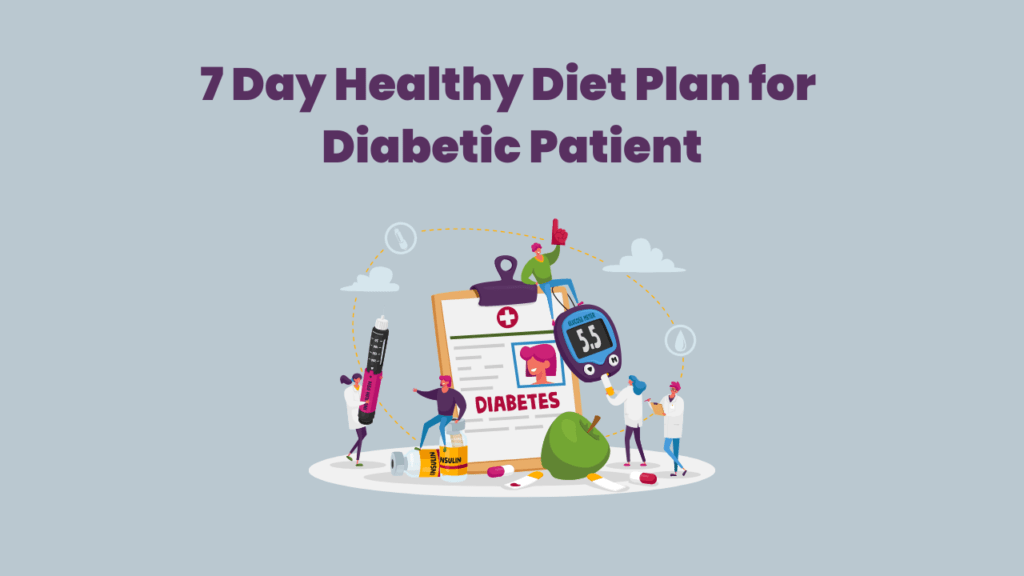Understanding the difference between a healthy diet and dieting to lose weight is crucial for achieving long-term well-being. While both concepts involve making conscious choices about what we eat, they have distinct goals and approaches.
Consider the impact of nutrient density versus caloric restriction, the significance of long-term health versus short-term results, and the sustainable nature of balanced nutrition versus fad diets.
Exploring these differences can help clarify how to maintain overall health versus focusing on weight loss. Let’s delve into what sets a healthy diet apart from dieting specifically to shed pounds.
Nutrient Density Vs. Caloric Restriction
When comparing a healthy diet to a weight loss diet, understanding the difference between prioritizing nutrient density and focusing solely on caloric restriction is essential.
Nutrient density refers to the amount of nutrients per calorie in a food item. A healthy diet emphasizes consuming foods rich in vitamins, minerals, fiber, and other beneficial compounds. On the other hand, a weight loss diet may solely focus on reducing overall calorie intake without considering the nutritional value of the foods consumed.
While caloric restriction is important for weight loss, prioritizing foods high in essential nutrients can support overall health and well-being. Striking a balance between managing caloric intake and ensuring nutrient adequacy is key to achieving sustainable weight loss and promoting best health in the long run.
Long-Term Health Vs. Short-Term Results
Prioritizing long-term health over short-term results is essential when considering the effectiveness of different dietary approaches. While some diets may promise quick weight loss, they often lack essential nutrients and can be unsustainable in the long run.
Opting for a healthy diet that focuses on balanced nutrition and overall well-being is more beneficial in the long term. Rapid weight loss diets or fad diets may lead to short-term results, but they can be harmful to your health and may result in regaining the lost weight once the diet is stopped.
It’s important to remember that sustainable changes to your eating habits can lead to lasting health benefits and help you maintain a healthy weight in the long term.
Balanced Nutrition Vs. Fad Diets
When choosing between balanced nutrition and fad diets, remember that sustainable eating habits are key to long-term health benefits.
Fad diets often focus on quick fixes and drastic changes, while balanced nutrition emphasizes a variety of nutrients to support overall well-being.
Opting for balanced nutrition over fad diets can help you establish a healthy relationship with food and maintain your health in the long run.
Nutrition Vs. Fads
For peak health and sustainable results, prioritizing balanced nutrition over fad diets is essential when aiming for long-term well-being. While fad diets often promise quick fixes, they usually lack essential nutrients and can lead to health issues. In contrast, a balanced diet provides the necessary vitamins, minerals, and macronutrients your body needs to function at its best.
Here is a comparison between Nutrition and Fads:
| Nutrition | Fad Diets |
|---|---|
| Focuses on whole foods and variety | Often restrict entire food groups |
| Promotes long-term health benefits | Emphasizes rapid weight loss |
| Sustainably fuels your body | May cause nutrient deficiencies |
| Supports overall well-being | Can be unsustainable long-term |
| Emphasizes moderation and balance | Often based on unproven theories |
Long-term Health Benefits
To understand the impact on long-term health, comparing the sustained benefits of balanced nutrition with those of fad diets is essential. Balanced nutrition, which includes a variety of fruits, vegetables, whole grains, lean proteins, and healthy fats, provides essential nutrients that support overall health and well-being.
Research shows that long-term adherence to a balanced diet can reduce the risk of chronic diseases such as heart disease, diabetes, and certain cancers. On the other hand, fad diets often focus on quick fixes and extreme restrictions, lacking essential nutrients and sustainability over time. While fad diets may lead to short-term weight loss, they aren’t typically sustainable and can have negative impacts on metabolism and overall health in the long run.
Sustainable Eating Habits
Choosing sustainable eating habits involves understanding the differences between balanced nutrition and fad diets to make informed decisions about your long-term health and well-being. Balanced nutrition focuses on consuming a variety of foods that provide crucial nutrients in appropriate proportions, supporting overall health and energy levels.
In contrast, fad diets often promote quick fixes, extreme restrictions, or elimination of entire food groups, which can lead to nutrient deficiencies and unsustainable practices. Balanced nutrition emphasizes whole foods like fruits, vegetables, lean proteins, whole grains, and healthy fats, ensuring you receive sufficient vitamins, minerals, and fiber. On the other hand, fad diets may offer rapid weight loss initially, but they’re challenging to maintain and may lack crucial nutrients, posing risks to your health in the long run.
Lifestyle Change Vs. Temporary Fix
When considering a healthy diet versus a weight loss diet, it’s important to distinguish between lifestyle changes and temporary fixes.
Long-term habits are the foundation of a sustainable approach to health, contrasting with quick fixes that offer temporary measures.
Long-Term Habits Vs. Quick Fixes
Making sustainable changes to your eating habits is key to achieving long-term health goals rather than opting for quick fixes that provide temporary results.
Long-term habits involve adopting a balanced diet rich in fruits, vegetables, whole grains, lean proteins, and healthy fats. This approach focuses on nourishing your body with essential nutrients while enjoying a variety of foods. On the other hand, quick fixes like crash diets or extreme restrictions may lead to initial weight loss but often result in nutrient deficiencies and unsustainable outcomes.
By prioritizing long-term habits, you allow yourself to develop a positive relationship with food, make gradual changes that are easier to maintain, and promote overall well-being.
Sustainable Approach Vs. Temporary Measures
Opting for a sustainable approach to dietary changes involves prioritizing long-lasting lifestyle modifications over temporary fixes for achieving health and wellness goals.
Sustainable changes focus on establishing habits that can be maintained in the long run, leading to overall better health outcomes.
On the other hand, temporary measures often involve quick fixes that may yield rapid results but are not sustainable over time.
Making gradual and sustainable dietary changes allows for a more balanced and realistic approach to health and weight management.
Here’s a comparison between a sustainable approach and temporary measures:
| Sustainable Approach | Temporary Measures |
|---|---|
| Focus on long-term health benefits | Quick but short-lived results |
| Emphasis on gradual changes for lasting impact | Immediate but often unsustainable changes |
| Encourages lifestyle modifications for overall well-being | Promotes drastic measures for rapid weight loss |
Health Focus Vs. Weight Focus
Go with a health-focused approach over a weight-focused mindset entails emphasizing lifestyle changes for long-term well-being rather than seeking temporary fixes for rapid weight loss. When you shift your focus to health, you’re more likely to adopt sustainable habits that nourish your body and mind.
This approach involves making gradual adjustments to your eating habits, physical activity levels, and overall wellness practices. By prioritizing health, you can establish a positive relationship with food and exercise, leading to improved overall health and reduced risk of chronic diseases.
In contrast, a weight-focused mindset often leads to short-term solutions like fad diets or extreme exercise regimens, which may provide quick results but are difficult to maintain over time.
Remember, focusing on health is a journey that prioritizes long-lasting well-being over temporary weight loss goals.
Energy and Vitality Vs. Low Energy Levels
Maintaining a healthy diet is essential for sustaining high energy levels and vitality, whereas a weight loss diet often leads to feelings of low energy.
A balanced diet rich in fruits, vegetables, whole grains, lean proteins, and healthy fats provides essential nutrients that support ideal bodily functions, mental clarity, and sustained energy throughout the day.
On the other hand, diets focused solely on weight loss may restrict calorie intake or eliminate essential food groups, leading to decreased energy levels, fatigue, and potential nutrient deficiencies.
It’s important to prioritize nourishing your body with a variety of nutrient-dense foods to maintain energy levels, support overall well-being, and sustain vitality rather than solely focusing on shedding pounds.
Listening to Body Vs. Strict Food Rules
When considering your approach to nutrition, focusing on listening to your body’s signals is crucial rather than rigidly adhering to strict food rules.
Your body has an innate wisdom that can guide you towards what it needs. Pay attention to feelings of hunger, fullness, and satisfaction. By tuning into these cues, you can make choices that support your overall well-being.
Strict food rules, on the other hand, can lead to feelings of deprivation and stress around eating. This can potentially disrupt your relationship with food and your body.
Embracing a more intuitive approach allows for flexibility and enjoyment in eating, promoting a healthier mindset towards nutrition.
Trusting your body’s signals can help you achieve a balanced and sustainable way of nourishing yourself.
Sustainable Habits Vs. Yo-Yo Dieting
To establish long-term success in your nutrition journey, it’s essential to focus on cultivating sustainable habits rather than falling into the cycle of yo-yo dieting. Sustainable habits involve making gradual, long-lasting changes to your eating patterns and lifestyle that you can maintain over time.
Yo-yo dieting, on the other hand, refers to the pattern of losing weight through restrictive diets, only to regain it once the diet is stopped. This cycle can have negative impacts on your physical and mental health.
Mindful Eating Vs. Emotional Eating
Engage in mindful eating to enhance your awareness of food choices and eating habits, distinguishing it from emotional eating tendencies.
Mindful eating involves paying attention to the sensory experience of food, such as taste, texture, and smell, without judgment. By focusing on the present moment during meals, you can better recognize hunger and fullness cues, leading to improved portion control and overall satisfaction.
On the other hand, emotional eating is driven by feelings rather than physical hunger, often resulting in consuming food to cope with emotions like stress, sadness, or boredom. Recognizing triggers for emotional eating and learning to address underlying emotions can help break this cycle and promote a healthier relationship with food.
Overall Well-Being Vs. Scale Numbers
Give importance to your overall well-being over focusing solely on the numbers on the scale when evaluating your health and fitness progress.
Remember that health is multidimensional and can’t be solely defined by a number on a scale.
Here’s why:
- Body Composition: Muscle weighs more than fat, so improvements in body composition may not always reflect on the scale.
- Nutrient Intake: Aiming for a balanced diet rich in nutrients is essential for overall health, even if it doesn’t immediately result in weight loss.
- Mental Health: Sustainable habits that support mental well-being, such as stress management and quality sleep, are critical for long-term health, regardless of weight fluctuations.
Conclusion
To wrap up, selecting a healthy diet over dieting to shed weight means emphasizing nourishment, balance, and overall well-being.
By concentrating on nutrient-rich foods, sustainable habits, and long-term health advantages, you can help your body’s energy, vigor, and nutritional requirements.
Remember, a healthy diet isn’t about quick fixes or strict rules, but rather about tuning in to your body, making mindful choices, and nurturing a positive relationship with food for enduring wellness.

